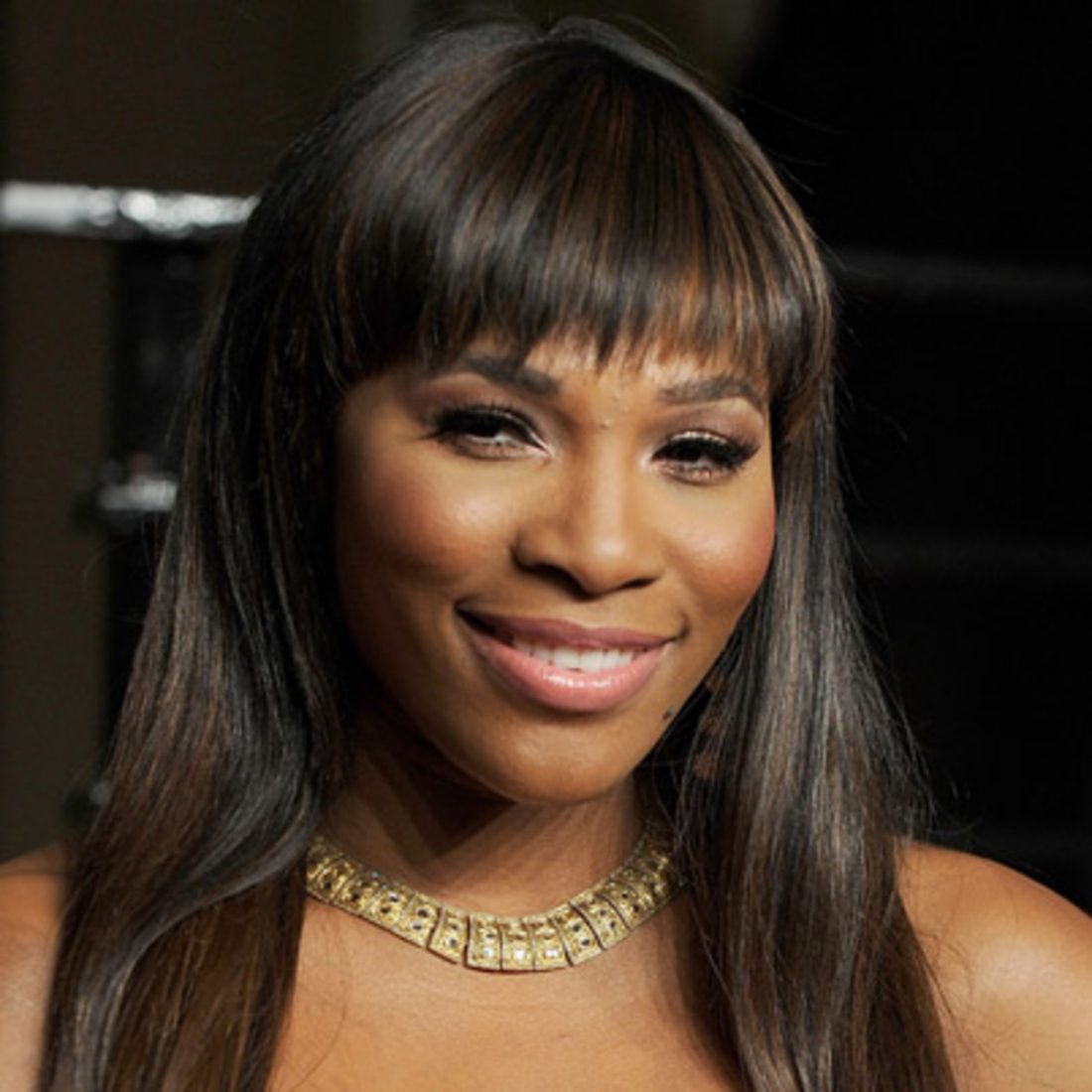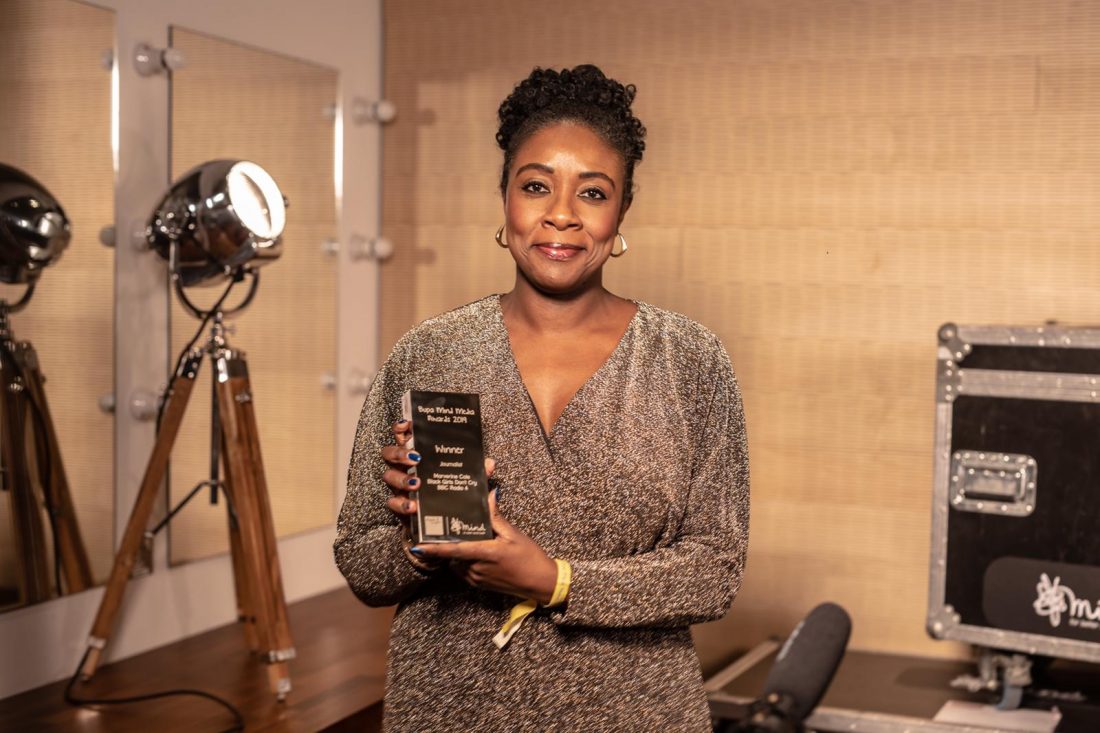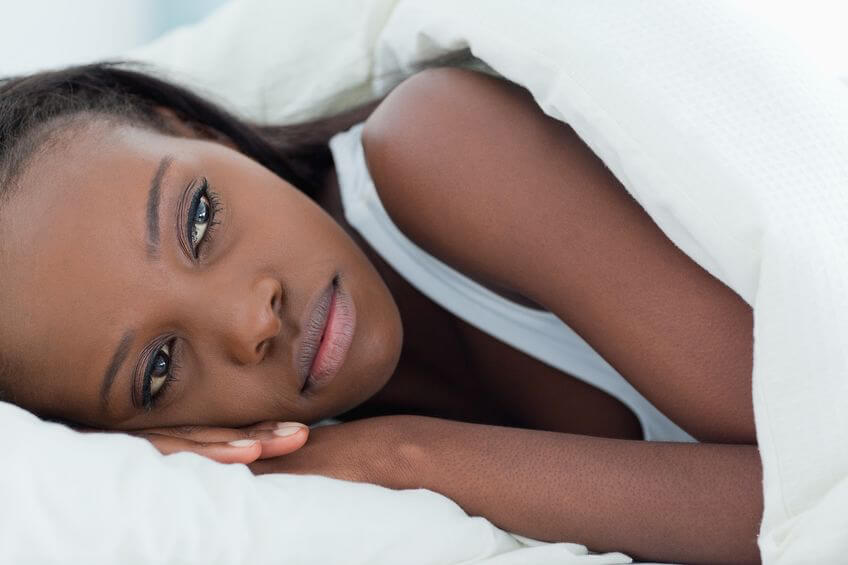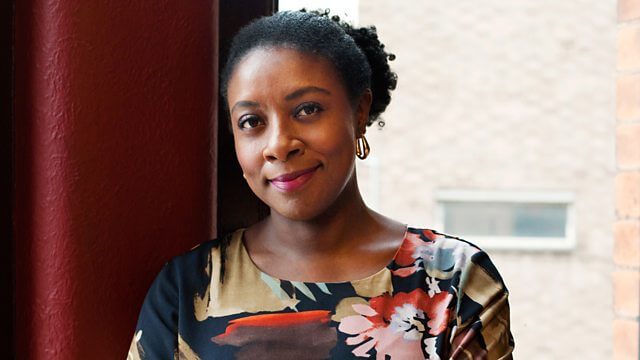In a world that consistently projects the idea that Black women are fierce, strong and independent, it’s understandable that many Black women feel like there is no room for their vulnerability and resort to wearing a mask of bravery often leading to dire consequences. Acclaimed journalist, broadcaster and lecturer, Marverine Cole tackled this topic in her recent ground-breaking documentary: Black Girls Don’t Cry.
The strong Black woman stereotype has a lot to answer for. We all know the familiar tropes; the taking no-nonsense, pillars of their families and communities’ women to the tough, angry or aggressive ladies, just some of the enduring stereotypes that often play out in the media, and in real life too.

Marverine Cole’s documentary, for which she deservedly won a Mind Media Journalist of the Year accolade, delves deeper into the reasons why Black women feel they have to put on a brave face, often having a detrimental effect on their mental health. In fact, NHS research has shown that Black women are more likely to suffer from common mental illnesses such as depression, anxiety, OCD and panic attacks than white women.

In the documentary, Marverine reveals that she too has been treated for mental illness issues (depression/anger management) and wanted to explore why Black women are more prone to mental illness and self-harm. We are introduced to 30-something year-old Jay from Birmingham who suffers from depression. Jay opens up to speak on her truth regarding the role Black women are expected to play and how it feels:
“We don’t have anyone to lean on or fall against because we’re expected to be the pillar everyone else can lean against. We also cry, we are tired, we are frustrated, we are exhausted.”
Some experts believe that the resilience Black women display runs much deeper than most realise. Marverine spoke to Dr Erica McInnis who shared her belief that Black women suffer from post-traumatic slave syndrome. She went on to explain that she believes generations of trauma have been passed down to Black women. They have taken on the resilience of their ancestors and the notion of surviving on their own. Dr Erica also believes that the illusion of inclusion is mentally damaging to Black women.
“We don’t have anyone to lean on or fall against because we’re expected to be the pillar everyone else can lean against. We also cry, we are tired, we are frustrated, we are exhausted.”
However, nothing is ever one-sided. Can it be that generational trauma and cultural barriers are the only reasons why many Black women feel they have to put on a mask and hide their emotions? Delving deeper into the possible causes, listeners are introduced to Jade from Birmingham who uses twitter to express her raw emotions about her journey with Border Personality Disorder (BPD) and depression.
Jade was diagnosed with depression at 16, she describes how she went to university and decided that she wasn’t going to let anything get her down. However, things changed when a few years later she lost her job, home and split up with her partner. Jade explains that it felt as though she woke up one day and couldn’t go on any longer as it felt unbearable. Jade describes being almost in a trance as she harmed herself. This led to her being sectioned. She said this experience was one of the scariest moments of her life.

At the age of 19, Jay had a nervous breakdown and was sectioned again and medicated for a week.
Jade and Jay’s experiences aren’t uncommon, the Government’s Race Disparity report revealed that Black adults are more likely to be detained under the Mental Health Act than any other ethnic group. It seems not enough is being done to prevent Black women’s mental illness from getting to the stage that the authorities deem sectioning them is the right decision. Jade describes her frustration with the system:
“All they seem to worry about is the paperwork and not the care they give to you. I feel alone and like I’ve got no one to tell the truth to. There are two extremes, you’re well or very unwell. They want us to be in the community but don’t do much to keep us here.”
“Yes, Black girls cry, and it’s okay to cry. We need to stop bottling up our emotions, but we must carry on fighting to get the help that we deserve.”
The NHS declined to be interviewed by Marverine about the frustrations Jade is experiencing. However, they released a statement stating they were sorry someone in their care felt this way and that they are working to implement a target programme to retain experienced staff. In the past, the NHS has piloted projects with South Asian women and Afro-Caribbean Men to find ways to break the stigma of speaking out. Yet there have been no projects within the NHS with a focus on helping Black women to break the stigma of speaking out. This raises the question, who is doing the work and providing the services that allow Black women to speak out about their mental health?
Sandra Griffiths, founder of an organisation called Catalyst for Change, shared her thoughts:
“For too long the needs of African and Caribbean women have been overlooked. I have observed that a number of women’s organisations and faith organisations are the ones actually providing the support to women with mental health problems. We need to understand the impact of the work organisations are doing and support them to deliver those services in a much more regular and consistent way.”

Marverine explains that her breakthrough came in the form of finding a therapist that had a similar heritage to hers. But what about those that can’t afford it? Therapy costs money and not everyone will have access to the disposable income required to pay for a therapist. What else is out there to help Black women?
One option could be community self-help support groups. Marverine attended one such group called an Emotional Emancipation Circle. While there, she spoke to a woman who said:
“It’s nice to have a space like this and to take off the mask you’ve had to wear to fit in. To the point, the only way to achieve in this environment is to be completely devoid of yourself.”
Marverine explained that while making the documentary she had learned how important it is that Black women look after themselves and finding a way to express themselves is very important.
So, in conclusion, yes, Black girls cry, and it’s okay to cry. We need to stop bottling up our emotions, but we must carry on fighting to get the help that we deserve.
Jade finishes with a message all Black women need to hear: “I want them to know that they aren’t alone and should not feel ashamed, feel confident to reach for help.”
Listen to Black Girls Don’t Cry on BBC Radio 4
Please speak to your GP if you need help and support with your mental health.












